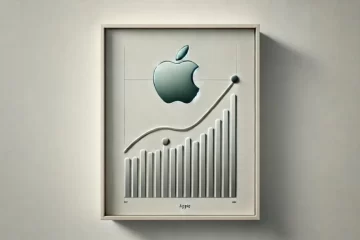The financial technology (fintech) industry has transformed how people interact with money. With rapid developments, fintech solutions offer increased efficiency, transparency, and access to financial services. One platform that has been gaining attention for bringing financial professionals and innovators together is Fintech Zoom. In this post, we will explore the key innovations and trends shaping Fintech Zoom and how they impact businesses and consumers.
The Role of Fintech Zoom in the Industry
Fintech Zoom acts as a hub for sharing industry knowledge, ideas, and innovations. It offers a collaborative space for startups, established financial institutions, and investors to stay connected. This convergence has led to the development of innovative solutions, with trends ranging from blockchain and cryptocurrency to artificial intelligence (AI) and decentralized finance (DeFi).
Major Innovations Highlighted in Fintech Zoom
1. Artificial Intelligence (AI) and Machine Learning
AI and machine learning are making significant strides in fintech. From automated customer service chatbots to predictive financial analytics, these technologies enhance efficiency and accuracy.
- AI-Driven Personal Finance Tools
AI tools provide users with personalized budgeting advice and spending insights, improving financial management. - Machine Learning in Fraud Detection
Advanced algorithms help detect fraudulent activities faster, protecting users and businesses from potential risks.
2. Blockchain and Cryptocurrency
Blockchain technology is revolutionizing the way financial transactions are processed, offering more secure and transparent platforms.
- The Rise of Decentralized Finance (DeFi)
DeFi platforms allow users to trade, lend, and borrow without intermediaries, reducing costs and barriers to entry. - Growth of Crypto Payments
With companies integrating crypto payment options, consumers now have more payment flexibility.
3. Embedded Finance and Open Banking
Fintech Zoom highlights how businesses embed financial services into non-financial platforms, known as embedded finance. This seamless integration allows companies to offer payment services, lending options, or insurance directly within their platforms.
- Open Banking for Enhanced User Control
Open banking enables customers to share their financial data securely with different service providers, unlocking tailored financial products. - New Business Models with Embedded Finance
E-commerce businesses are adopting embedded finance solutions to offer customers one-click loans and installment payment options.
4. Regulatory Technology (RegTech)
As financial regulations evolve, staying compliant is becoming increasingly complex. RegTech solutions, which leverage technology to manage regulatory processes efficiently, are becoming a key focus.
- Automation of Compliance Processes
RegTech helps financial institutions automate compliance reporting and monitoring, minimizing human error. - Enhancing Data Privacy and Security
Regulatory frameworks prioritize data privacy, and Fintech Zoom emphasizes innovations that ensure secure user data management.
5. Financial Inclusion and Digital Payments
One of the most impactful trends in fintech is the focus on financial inclusion. Digital payment platforms make financial services accessible to underbanked and unbanked populations worldwide.
- Mobile Wallets Gaining Momentum
Mobile wallets provide users with instant access to banking services, eliminating the need for traditional banks. - Payment Innovations in Developing Markets
In developing economies, fintech solutions like micro-loans and mobile money are empowering small businesses and individuals.
Challenges Facing Fintech Innovations
While the future of fintech looks promising, there are still challenges that innovators and businesses must address.
- Regulatory and Compliance Issues
Fintech companies must navigate evolving regulations across different regions, which can slow down product launches. - Cybersecurity Risks
As digital financial solutions expand, cybersecurity becomes a priority to protect users from threats.
FAQs
1. What is Fintech Zoom?
Fintech Zoom is a platform that connects financial industry professionals, startups, and innovators to share insights, trends, and solutions in fintech.
2. How is AI used in fintech?
AI is used for personalized financial management tools, predictive analytics, fraud detection, and automating customer support services.
3. What is DeFi, and why is it important?
DeFi, or decentralized finance, eliminates intermediaries in financial transactions, offering more affordable and accessible financial services.
4. How does open banking benefit customers?
Open banking allows users to securely share their financial data with various providers, unlocking tailored services and better financial products.
5. What are the challenges fintech companies face?
Key challenges include navigating complex regulatory environments, ensuring cybersecurity, and managing rapid technological changes.
Conclusion
Fintech Zoom plays a vital role in shaping the financial industry’s future by fostering collaboration and highlighting the latest innovations. As trends like AI, blockchain, embedded finance, and digital payments continue to evolve, businesses and consumers alike must stay informed to benefit from these advancements. While challenges remain, the future of fintech promises exciting opportunities to transform the way we manage and interact with finances.
Stay ahead of the curve by following platforms like Fintech Zoom and exploring the emerging technologies reshaping the financial world.




